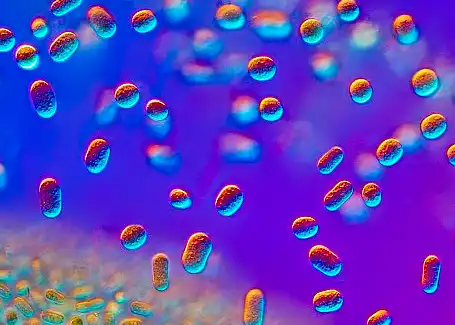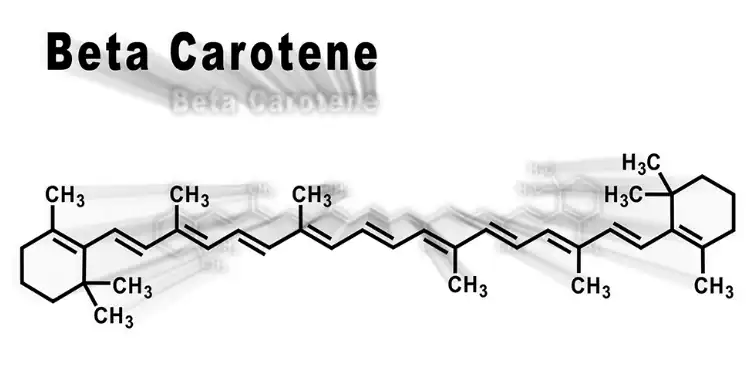Dunaliella Salina: Natural Beta-Carotene Powerhouse
2025-07-25 11:33:02
In the realm of natural ingredients, few can match the extraordinary potential of Dunaliella Salina Powder. This remarkable microalgae has captured the attention of scientists, nutritionists, and health enthusiasts alike, thanks to its unparalleled ability to produce beta-carotene. As we dive into the world of this tiny yet mighty organism, we'll uncover its secrets, explore its journey from nature to supplement, and examine how it stacks up against synthetic alternatives.


Harnessing Microalgae: The Beta-Carotene Revolution
Dunaliella salina is not your average algae. This unicellular microorganism thrives in extreme environments, particularly in highly saline waters. Its resilience and adaptability have made it a subject of fascination for researchers and a valuable resource for the health and wellness industry.
The Exceptional Beta-Carotene Producer
What sets Dunaliella salina apart is its extraordinary capacity to accumulate beta-carotene. Under optimal conditions, this microalgae can produce up to 14% of its dry weight in beta-carotene, a feat unmatched by any other known natural source. This makes it an ideal candidate for commercial beta-carotene production.
Nature's Antioxidant Powerhouse
Beta-carotene, a precursor to vitamin A, is renowned for its potent antioxidant properties. When applied topically or used in formulations, it can help combat oxidative stress caused by environmental factors such as pollution and harsh weather conditions. This makes Dunaliella salina extract a valuable ingredient in skincare and cosmetic products.
Mineral-Rich Composition
Beyond its beta-carotene content, Dunaliella Salina Powder is a treasure trove of essential minerals. It contains significant amounts of magnesium, calcium, iodine, and potassium. These minerals play crucial roles in maintaining healthy skin function and can help replenish depleted mineral levels when applied topically.
From Desert to Supplement: Dunaliella's Journey
The story of Dunaliella salina's transformation from a desert-dwelling microorganism to a sought-after supplement ingredient is a testament to human ingenuity and the power of nature.
Cultivation in Extreme Environments
Dunaliella salina is typically cultivated in large, open-air ponds in arid regions. These ponds mimic the microalgae's natural habitat, with high salinity levels and abundant sunlight. This unique cultivation method ensures that the algae produce optimal levels of beta-carotene.
The Two-Stage Production Process
Commercial production of Dunaliella salina beta-carotene often employs a two-stage method:
- Biomass Growth: In the first stage, the algae are grown in nutrient-rich ponds to maximize cell division and biomass production.
- Beta-Carotene Induction: In the second stage, the algae are transferred to larger ponds with nutrient-poor, highly saline water. This stress induces the production of beta-carotene as a protective mechanism.
Extraction and Processing
Once harvested, the algae undergo careful extraction processes to isolate the beta-carotene and other valuable compounds. These extracts can then be formulated into various products, including Dunaliella salina powder, which finds applications in supplements, cosmetics, and food colorants.
Comparing Natural vs. Synthetic Beta-Carotene Sources
As the demand for beta-carotene continues to grow, it's essential to understand the differences between natural sources like Dunaliella salina and synthetic alternatives.

Isomeric Composition
One of the key distinctions between natural and synthetic beta-carotene lies in their isomeric composition:
- Synthetic beta-carotene is typically composed of almost 100% trans-beta-carotene.
- Natural beta-carotene from fruits and vegetables contains about 10% cis isomers.
- Dunaliella salina-derived beta-carotene offers a unique blend, with approximately equal proportions of all-trans and 9-cis isomers.
This diverse isomeric profile may contribute to the enhanced bioavailability and effectiveness of natural beta-carotene sources.
Bioavailability and Absorption
Research suggests that the natural beta-carotene from Dunaliella salina may be more readily absorbed by the body compared to synthetic versions. The presence of other carotenoids and natural lipids in the algal extract could enhance the uptake and utilization of beta-carotene.
Additional Beneficial Compounds
Unlike synthetic beta-carotene, Dunaliella salina extract contains a complex array of other beneficial compounds, including:
- Alpha-carotene
- Zeaxanthin
- Lutein
- Chlorophyll
- Fatty acids
- Proteins
These additional components may contribute to the overall health benefits of Dunaliella salina-derived products.
Environmental Considerations
The production of natural beta-carotene from Dunaliella salina is generally considered more environmentally friendly compared to synthetic manufacturing processes. The algae's ability to thrive in arid, non-arable land makes it a sustainable option that doesn't compete with food crops for resources.
Applications in Various Industries
The versatility of Dunaliella salina extract extends beyond nutritional supplements. Its applications span multiple industries:
- Cosmetics and Skincare: The antioxidant properties of beta-carotene make it a valuable ingredient in anti-aging and sun protection products.
- Food and Beverage: As a natural colorant, Dunaliella salina-derived beta-carotene provides a vibrant yellow to orange hue without synthetic additives.
- Nutraceuticals: The high beta-carotene content and additional nutrients make it an ideal ingredient for dietary supplements.
- Animal Feed: Beta-carotene is often used as a feed additive to enhance the health and appearance of livestock and aquaculture species.
The growing preference for natural ingredients in these industries has further boosted the demand for Dunaliella Salina Powder-derived products.
Future Prospects and Research
As our understanding of Dunaliella salina and its components deepens, researchers continue to explore new potential applications and benefits. Some areas of ongoing investigation include:
- The role of Dunaliella salina extract in supporting immune function
- Its potential in promoting cardiovascular health
- The development of novel extraction and processing techniques to maximize the bioavailability of its beneficial compounds
- The exploration of other valuable metabolites produced by the microalgae
These research efforts promise to unlock even more potential uses for this remarkable microorganism in the years to come.
Conclusion
Dunaliella salina stands out as a true powerhouse in the world of natural beta-carotene sources. Its unique ability to produce high levels of this valuable carotenoid, coupled with its rich mineral content and additional beneficial compounds, makes it a prized ingredient in various industries. As we continue to uncover the full potential of this remarkable microalgae, it's clear that Dunaliella Salina Powder will play an increasingly important role in our quest for sustainable, natural solutions to health and wellness challenges.
For businesses looking to harness the power of Dunaliella salina and other plant-based ingredients, YTBIO offers a range of high-quality, organic solutions. Whether you're a nutraceutical company seeking standardized herbal extracts, a cosmetic brand in need of potent natural actives, or a functional beverage maker looking for innovative ingredients, YTBIO has the expertise and products to meet your needs. Our commitment to quality, sustainability, and innovation makes us an ideal partner for companies striving to create exceptional, nature-derived products.
Ready to explore how Dunaliella salina and other organic ingredients can elevate your products? Contact YTBIO today at sales@sxytorganic.com to discuss your specific requirements and discover our range of certified organic, plant-based ingredients. Let's work together to bring the power of nature to your customers!
References
1. Johnson, E. J., & Schaefer, E. J. (2013). Potential role of dietary n-3 fatty acids in the prevention of dementia and macular degeneration. The American Journal of Clinical Nutrition, 71(1), 397S-402S.
2. Ben-Amotz, A., & Avron, M. (1990). The biotechnology of cultivating the halotolerant alga Dunaliella. Trends in Biotechnology, 8, 121-126.
3. Ramos, A., Coesel, S., Marques, A., Rodrigues, M., Baumgartner, A., Noronha, J., ... & Varela, J. (2008). Isolation and characterization of a stress-inducible Dunaliella salina Lcy-β gene encoding a functional lycopene β-cyclase. Applied Microbiology and Biotechnology, 79(5), 819-828.
4. Ye, Z. W., Jiang, J. G., & Wu, G. H. (2008). Biosynthesis and regulation of carotenoids in Dunaliella: progresses and prospects. Biotechnology Advances, 26(4), 352-360.
5. Lamers, P. P., Janssen, M., De Vos, R. C., Bino, R. J., & Wijffels, R. H. (2008). Exploring and exploiting carotenoid accumulation in Dunaliella salina for cell-factory applications. Trends in Biotechnology, 26(11), 631-638.
6. Raja, R., Hemaiswarya, S., & Rengasamy, R. (2007). Exploitation of Dunaliella for β-carotene production. Applied Microbiology and Biotechnology, 74(3), 517-523.
_1737093401309.png)
